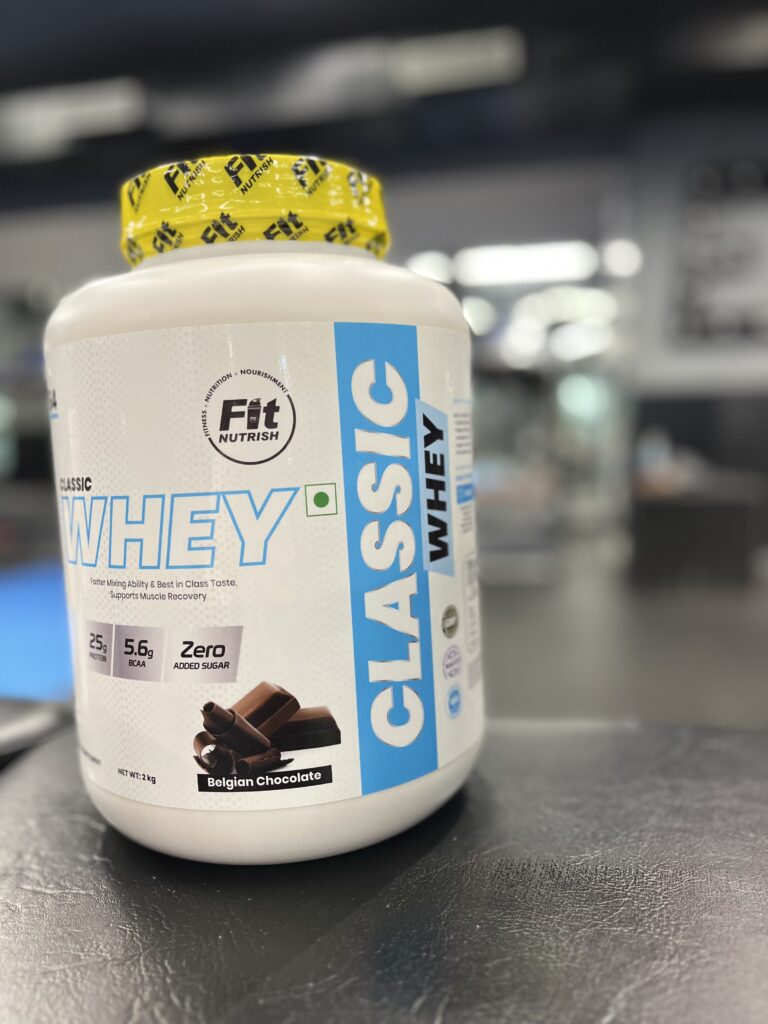Creating a balanced diet is essential for overall health and wellness. A balanced diet provides the nutrients your body needs to function at its best. However, getting all the nutrients from food alone can be challenging for some people. This is where the right supplements come into play. By integrating the right supplements into your diet, you can ensure you are meeting all your nutritional needs. For high-quality supplements, visit a reliable
supplement store online. In this blog, we will discuss how to create a balanced diet with the right supplements, emphasizing the importance of hydration and how supplements can support your nutrition goals.
Understanding What Makes a Balanced Diet
Before diving into supplements, it’s crucial to understand what a balanced diet consists of. A balanced diet typically includes:
- Carbohydrates: These provide energy for the body. Good sources include whole grains, fruits, and vegetables.
- Proteins: Essential for muscle growth, repair, and immune function. Sources include meat, poultry, fish, beans, and legumes.
- Fats: Healthy fats support brain function and overall cell health. Opt for healthy fats like avocados, olive oil, and nuts.
- Vitamins and Minerals: These play a crucial role in numerous body functions. Fruits, vegetables, dairy products, and lean meats are great sources.
- Water: Hydration is a critical part of any diet. Drinking plenty of water ensures that your body can absorb nutrients and detoxify effectively.
A balanced diet should be diverse and include a variety of whole foods. However, in today’s busy world, it can sometimes be difficult to get the necessary nutrients from food alone. This is where supplements come in.
The Importance of Supplements in a Balanced Diet
Supplements can fill the gaps in your nutrition. Whether you’re looking to support your workout routine, boost your immune system, or address specific deficiencies, supplements can make a significant difference in maintaining a balanced diet. When used correctly, they complement your meals and enhance overall health.
Hydration and Its Role in a Balanced Diet
While food provides essential nutrients, hydration plays a pivotal role in your body’s ability to use those nutrients. Water is involved in digestion, nutrient absorption, and the transport of essential vitamins and minerals throughout the body. It also helps regulate body temperature and flush out toxins.
When you are hydrated, your body performs at its peak, and the nutrients from your food are better absorbed. Drinking water should always be a priority in your daily routine, but you can also look for supplements that help support hydration levels. Some electrolyte supplements, for instance, can help replenish essential minerals after intense physical activity.
Supplements to Create a Balanced Diet
- Multivitamins Multivitamins are one of the most popular supplements. They provide a wide range of essential vitamins and minerals that can be difficult to obtain in sufficient amounts from food alone. By taking a daily multivitamin, you can ensure you’re meeting your basic nutritional needs.
- Protein Supplements Protein is vital for muscle repair, immune function, and overall body maintenance. While whole foods like chicken, fish, and beans are excellent sources, some people may need additional protein, especially if they are active or have increased protein needs. Protein powders or protein bars are convenient ways to increase your intake. Fitnutrish peanut protein bars are an excellent example of a healthy, portable protein source that supports your balanced diet. You can easily find them at a supplement store online.
- Omega-3 Fatty Acids Omega-3 fatty acids are essential fats that support brain function, reduce inflammation, and promote heart health. Fish oil supplements are an excellent source of omega-3s, but plant-based alternatives, like flaxseed oil, are also available for those on plant-based diets. These supplements can help ensure you are getting enough healthy fats in your diet.
- Probiotics A healthy gut is essential for optimal digestion and overall well-being. Probiotics, which contain beneficial bacteria, can help balance your gut microbiome and improve digestion. A healthy gut supports nutrient absorption and strengthens the immune system.
- Vitamin D Vitamin D plays a crucial role in bone health, immune function, and overall vitality. It can be challenging to get enough vitamin D through food alone, especially if you live in an area with limited sunlight. Vitamin D supplements can help bridge this gap and support a balanced diet.
- Magnesium Magnesium is a mineral that supports muscle function, nerve function, and energy production. It’s also important for regulating blood pressure. Many people do not get enough magnesium from their diets, making magnesium supplements an excellent addition to support your health.
- Fiber Supplements Fiber is essential for digestive health. While fruits, vegetables, and whole grains are great sources of fiber, many people still fall short of the recommended daily intake. Fiber supplements can help promote healthy digestion and keep you feeling full longer, making them a great addition to your balanced diet.
How to Choose the Right Supplements for Your Needs
When selecting supplements, it’s essential to consider your individual health needs. Ask yourself the following questions:
- What are your specific health goals? Are you looking to boost energy, improve muscle mass, or support your immune system?
- Do you have any nutrient deficiencies? If you have been diagnosed with a deficiency, a targeted supplement can help you address the issue.
- Are you following a specific diet? If you are vegetarian or vegan, you may need to supplement certain nutrients that are more difficult to obtain from plant-based foods, such as vitamin B12 and omega-3 fatty acids.
- What is your activity level? If you engage in regular exercise, you may require additional protein, electrolytes, or vitamins to support muscle recovery and hydration.
How Supplements Complement a Balanced Diet
Supplements should never replace whole foods. Instead, they should be used to complement your diet, ensuring that you meet all of your nutritional needs. When combined with a variety of nutrient-rich foods, supplements can help you achieve optimal health.
In addition to a well-rounded diet, remember to focus on staying hydrated. Hydration plays a vital role in how your body processes the nutrients from food and supplements. Drinking enough water throughout the day ensures that your body can absorb and utilize the supplements you take.
Where to Find the Right Supplements
If you’re looking for high-quality supplements, a reliable
supplement store online is a great place to start.
Fitnutrish offers a variety of supplements, including protein bars, multivitamins, and hydration support products, all designed to complement a balanced diet. You can browse through their selection to find the supplements that best suit your health goals and lifestyle.
Conclusion
Creating a balanced diet is essential for maintaining good health, and supplements can be a valuable tool in this process. They can help fill in the gaps in your nutrition, support hydration, and ensure that your body is getting the nutrients it needs to thrive. However, supplements should be used in conjunction with a well-rounded diet that includes a variety of whole foods. Hydration is also key in supporting the absorption of nutrients from both food and supplements.
By carefully selecting the right supplements, you can enhance your diet and achieve your health goals more effectively. Always remember to consult with a healthcare professional before adding any new supplements to your routine, especially if you have specific
health concerns.


